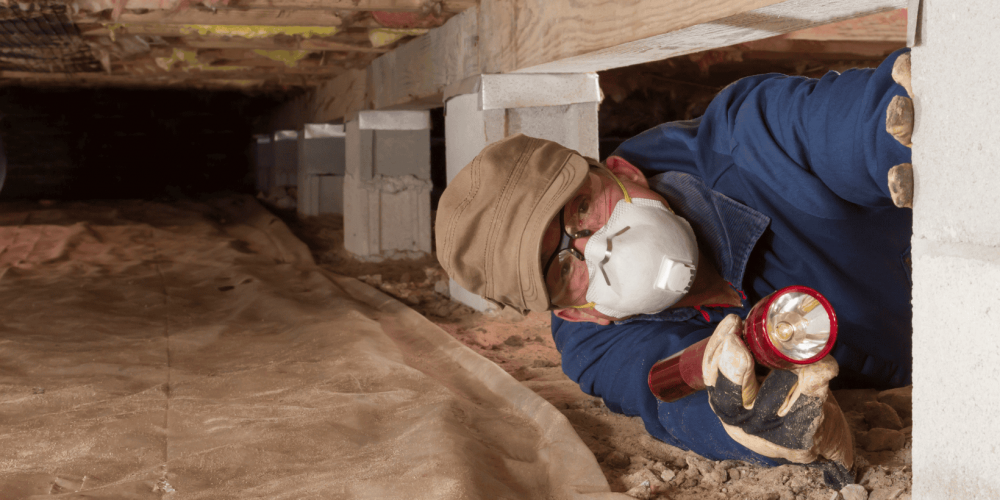Termites are a homeowner’s worst nightmare, especially in termite-prone regions like Southwest Florida. These wood-destroying insects can cause thousands of dollars in damage to your home before you even know they’re there. To protect your home, you may wonder whether to handle termites on your own with DIY solutions or hire a professional pest control company. The answer to this question depends on various factors, including the seasonality of termites, types of termites present, the need for a Wood-Destroying Organism (WDO) inspection, and the effectiveness of different treatments. Let’s explore these considerations in more detail.
Termite Seasonality in Southwest Florida
Termites are active year-round in Southwest Florida due to the warm, humid climate, but their activity peaks in the spring and summer, when they swarm to start new colonies. Subterranean termites, the most common type in Florida, are especially active during the rainy season, as moisture in the soil makes it easier for them to thrive. Drywood termites tend to swarm in late summer and early fall.
Understanding the seasonality of termites is crucial when deciding whether to take a DIY approach or call in the professionals. DIY treatments may only offer temporary relief during peak activity periods, whereas professionals can provide comprehensive solutions year-round.
Different Types of Termites: Signs and Treatments
Southwest Florida is home to several termite species, each requiring different treatment methods. The most common types are:
Subterranean Termites
- Signs: Mud tubes along foundations, hollow-sounding wood, bubbling paint, or discarded wings near windows and doors.
- Treatment: Subterranean termites live underground and enter homes through the soil. Treatment typically involves soil barriers, bait stations, and foams that penetrate deep into the soil to eliminate colonies. Professionals may also recommend tenting in extreme cases where the infestation is widespread.
Drywood Termites
- Signs: Small piles of frass (termite droppings), tiny holes in wood, and audible clicking sounds inside walls.
- Treatment: Drywood termites live within the wood they infest. DIY solutions may involve spot treatments, but they often fail to reach the entire colony. Professional treatments include localized injections of termiticide foam or tenting the entire home to ensure all termites are eradicated.
Dampwood Termites
- Signs: Presence in damp, decaying wood, such as leaky roofs or areas with water damage.
- Treatment: Dampwood termites are less common in homes because they prefer moist wood, but if they are present, moisture control and wood replacement are often required. Professionals use foams or localized treatments to eliminate the infestation.
Treatment Options: Foam vs. Tenting
When choosing between DIY or professional termite control, understanding the available treatment options is key. Two common termite treatments are foam and tenting, each with its advantages and disadvantages.
Foam Treatments
- How it Works: Foam treatments are injected directly into termite galleries in wood or soil, expanding to fill the gaps and delivering insecticide throughout the infested area.
- Best for: Targeted infestations, especially in early stages or for subterranean and drywood termites.
- DIY vs. Professional: While foams are available for DIY use, professional-grade foams are more potent and reach deeper into colonies, ensuring a more thorough treatment.
Tenting (Fumigation)
- How it Works: Tenting involves preparing your home so that the professionals can cover the entire exterior with a tent, releasing fumigants that penetrate all areas of the structure, killing termites at every life stage.
- Best for: Widespread or severe infestations, especially with drywood termites.
- DIY vs. Professional: Tenting requires professional expertise and equipment. It’s not a DIY option and is the most effective way to eradicate large, deeply entrenched termite colonies.
DIY Termite Solutions: The Pros and Cons
Many homeowners are tempted to tackle termite problems on their own, often believing that DIY options are more cost-effective and convenient. Here are some considerations:
Pros of DIY Solutions:
- Cost Savings: DIY termite treatments, such as sprays, foams, and bait stations, are generally less expensive upfront compared to hiring a professional service.
- Immediate Action: You can start applying treatments as soon as you notice termite activity, without waiting for an appointment.
- Sense of Control: DIYers often enjoy the satisfaction of handling a problem themselves.
Cons of DIY Solutions:
- Limited Effectiveness: Most over-the-counter products only deal with surface-level infestations and may not reach the termite colonies deep within walls, soil, or wooden structures.
- Potential for Error: Identifying the extent of the infestation and applying the correct amount of treatment can be tricky for those without experience.
- Temporary Fixes: DIY treatments may temporarily repel termites but often fail to eradicate entire colonies, leading to recurring problems and potentially more damage over time.
Professional Termite Companies: The Pros and Cons
When you hire a professional termite company like JD Smith Pest Control, you’re investing in expertise and long-term protection. But is it worth the extra cost?
Pros of Hiring a Termite Company:
- Thorough Inspection: Professionals have the tools and knowledge to conduct a comprehensive WDO inspection, identifying the full extent of the infestation.
- Effective Treatments: Pest control companies use stronger, industry-grade products that can penetrate deeply into termite colonies, offering more permanent solutions.
- Customized Plans: Experts can tailor treatments based on your home’s specific needs, including the type of termites, severity of infestation, and environmental factors.
- Preventative Measures: Many termite companies provide preventative treatment, ongoing monitoring and maintenance plans, ensuring that termites don’t return.
- Warranty and Peace of Mind: Reputable companies often offer warranties on their work, giving you the confidence that the problem will be resolved without repeated costs.
Cons of Hiring a Termite Company:
- Higher Upfront Costs: Professional treatments are more expensive than DIY solutions, with the average cost of termite tenting ranging from $1,000 to $2,500. While there’s a higher upfront cost, you often save money in the long run by preventing further damage.
- Scheduling and Time: You may need to schedule an inspection and wait for treatment to begin, which could delay immediate action.
DIY Termite Treatment vs. Termite Companies: Which Is More Effective?
While DIY solutions may seem appealing due to their lower initial cost, they often fall short when dealing with significant termite infestations. Termites are highly resilient and can cause extensive, expensive damage if not dealt with properly. A professional termite company offers the knowledge, tools, and treatments needed to ensure complete eradication and long-term protection.
At JD Smith Pest Control, we specialize in termite control for homes in Southwest Florida. Our team is equipped to handle any size infestation and provides ongoing support to keep your home termite-free. Don’t take chances with DIY solutions that may only provide a temporary fix.
Contact us today for a thorough inspection and a treatment plan designed to protect your home for the long haul.
Protect your home. Protect your investment. Trust the experts.



